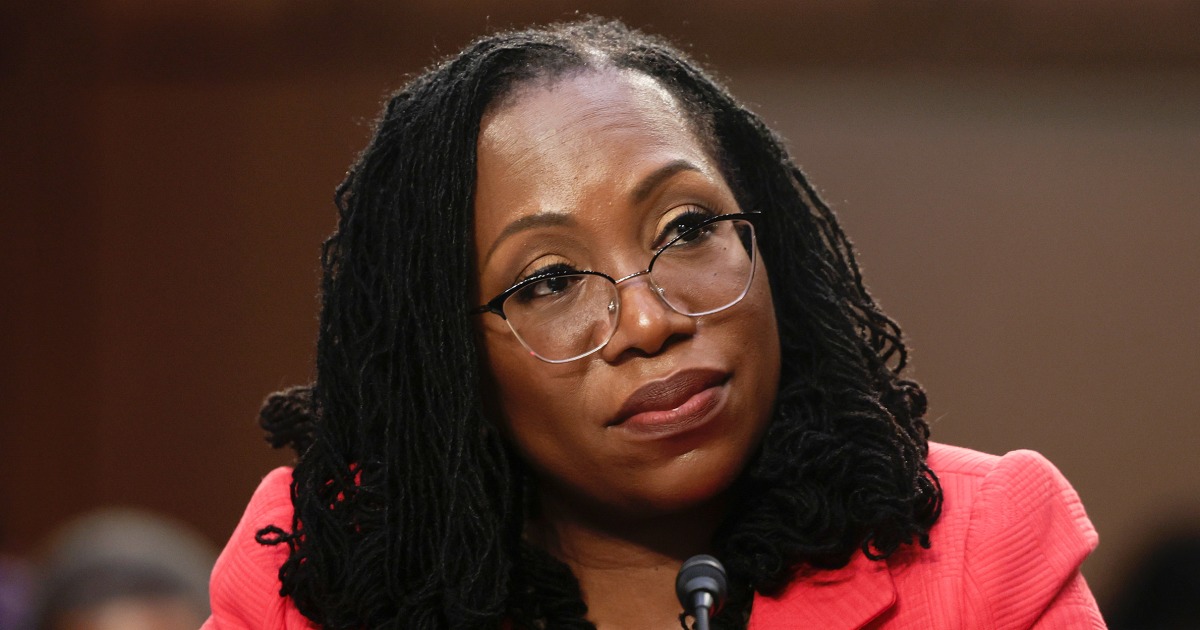Supreme Court Justices Sonia Sotomayor and Ketanji Brown Jackson raised serious questions about the future of democracy in their dissents to the high court’s ruling on Donald Trump’s immunity claims.
The two justices, along with fellow Democratic appointee Elena Kagan, were on the losing side of a 6-3 decision finding that Trump had “absolute immunity” for some of the actions he took to try to overturn his loss in the 2020 election.
Writing for all three Democratic appointees, Sotomayor found fault with the majority’s ruling that Trump is entitled to at least presumptive immunity for all “official acts,” including talking with the Justice Department or Vice President Mike Pence about his schemes:
Today’s decision to grant former Presidents criminal immunity reshapes the institution of the Presidency. It makes a mockery of the principle, foundational to our Constitution and system of Government, that no man is above the law. […]
When [the President of the United States] uses his official powers in any way, under the majority’s reasoning, he now will be insulated from criminal prosecution. Orders the Navy’s Seal Team 6 to assassinate a political rival? Immune. Organizes a military coup to hold onto power? Immune. Takes a bribe in exchange for a pardon? Immune. Immune, immune, immune.
Let the President violate the law, let him exploit the trappings of his office for personal gain, let him use his official power for evil ends. Because if he knew that he may one day face liability for breaking the law, he might not be as bold and fearless as we would like him to be. That is the majority’s message today.
Even if these nightmare scenarios never play out, and I pray they never do, the damage has been done. The relationship between the President and the people he serves has shifted irrevocably. In every use of official power, the President is now a king above the law.
[…] Never in the history of our Republic has a President had reason to believe that he would be immune from criminal prosecution if he used the trappings of his office to violate the criminal law. Moving forward, however, all former Presidents will be cloaked in such immunity. If the occupant of that office misuses official power for personal gain, the criminal law that the rest of us must abide will not provide a backstop. With fear for our democracy, I dissent.
Supreme Court justices have previously drawn attention for dropping the word “respectfully” from “I respectfully dissent” as a closing statement, so the final sentence is particularly notable.
In a separate dissent, Jackson added a few words of her own about the decision’s “paradigm shift” for the powers of the presidency:
[…] under the new Presidential accountability model, the starting presumption is that the criminal law does not apply to Presidents, no matter how obviously illegal, harmful, or unacceptable a President’s official behavior might be. Regardless of all that, courts must now ensure that a former President is not held accountable for any criminal conduct he engages in while he is on duty,
[…] the Rule of Law now becomes the rule of judges, with courts pronouncing which crimes committed by a President have to be let go and which can be redressed as impermissible. So, ultimately, this Court itself will decide whether the law will be any barrier to whatever course of criminality emanates from the Oval Office in the future. The potential for great harm to American institutions and Americans themselves is obvious.
Jackson ended with a similarly stark sign-off:
The majority of my colleagues seems to have put their trust in our Court’s ability to prevent Presidents from becoming Kings through case-by-case application of the indeterminate standards of their new Presidential accountability paradigm. I fear that they are wrong. But, for all our sakes, I hope that they are right. In the meantime, because the risks (and power) the Court has now assumed are intolerable, unwarranted, and plainly antithetical to bedrock constitutional norms, I dissent.



Yes.